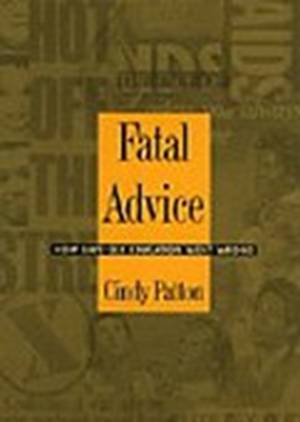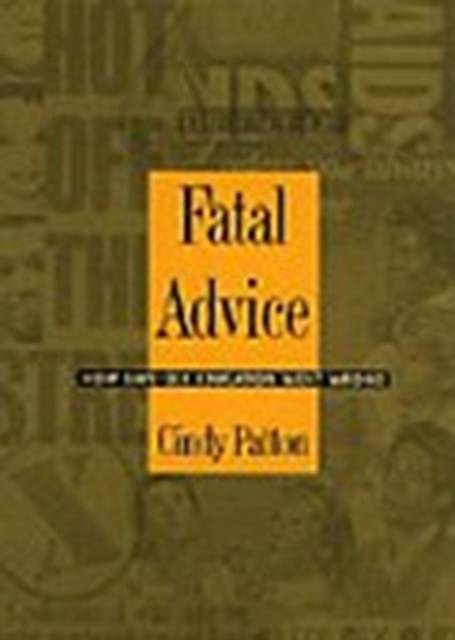
Nos liseuses Vivlio rencontrent actuellement des problèmes de synchronisation. Nous faisons tout notre possible pour résoudre ce problème le plus rapidement possible. Toutes nos excuses pour la gêne occasionnée !
- Retrait gratuit dans votre magasin Club
- 7.000.000 titres dans notre catalogue
- Payer en toute sécurité
- Toujours un magasin près de chez vous
Nos liseuses Vivlio rencontrent actuellement des problèmes de synchronisation. Nous faisons tout notre possible pour résoudre ce problème le plus rapidement possible. Toutes nos excuses pour la gêne occasionnée !
- Retrait gratuit dans votre magasin Club
- 7.000.0000 titres dans notre catalogue
- Payer en toute sécurité
- Toujours un magasin près de chez vous
115,95 €
+ 231 points
Format
Description
The American public responded to the first cases of AIDS with fear and panic. Both policymakers and activists were concerned not only with stopping the spread of the disease, but also with guiding the public's response toward those already infected. Fatal Advice is an examination of how the nation attempted, with mixed results, to negotiate the fears and concerns brought on by the epidemic. A leading writer on the cultural politics of AIDS, Cindy Patton guides us through the thicket of mass-media productions, policy and public health enterprises, and activist projects as they sprang up to meet the challenge of the epidemic, shaping the nation's notion of what safe-sex is and who ought to know what about it.
There is the official story, and then there is another, involving local groups and AIDS activists. Going back to early government and activist attempts to spread information, Patton traces a slow separation between official advice and that provided by those on the front lines in the battle against AIDS. She shows how American anxieties about teen sex played into the nation's inadequate education and protection of its young people, and chronicles the media's attempts to encourage compassion without broaching the touchy subject of sex or disrupting the notion that AIDS was a disease of social and sexual outcasts. Her overview of the relationship between shifting medical perceptions and safe-sex advice reveals why radical safe-sex educators eventually turned to sexually explicit, including pornographic, representations to spread their message--and why even these extreme tactics could not overcome the misguided national teaching on AIDS.
Patton closes with a stirring manifesto, an urgent call to action for all those who do not want to see the hard lessons of AIDS education and activism wasted, or, with these lessons, the loss of so many more lives.
There is the official story, and then there is another, involving local groups and AIDS activists. Going back to early government and activist attempts to spread information, Patton traces a slow separation between official advice and that provided by those on the front lines in the battle against AIDS. She shows how American anxieties about teen sex played into the nation's inadequate education and protection of its young people, and chronicles the media's attempts to encourage compassion without broaching the touchy subject of sex or disrupting the notion that AIDS was a disease of social and sexual outcasts. Her overview of the relationship between shifting medical perceptions and safe-sex advice reveals why radical safe-sex educators eventually turned to sexually explicit, including pornographic, representations to spread their message--and why even these extreme tactics could not overcome the misguided national teaching on AIDS.
Patton closes with a stirring manifesto, an urgent call to action for all those who do not want to see the hard lessons of AIDS education and activism wasted, or, with these lessons, the loss of so many more lives.
Spécifications
Parties prenantes
- Auteur(s) :
- Editeur:
Contenu
- Nombre de pages :
- 192
- Langue:
- Anglais
- Collection :
Caractéristiques
- EAN:
- 9780822317500
- Date de parution :
- 24-04-96
- Format:
- Livre relié
- Format numérique:
- Genaaid
- Dimensions :
- 160 mm x 223 mm
- Poids :
- 544 g







